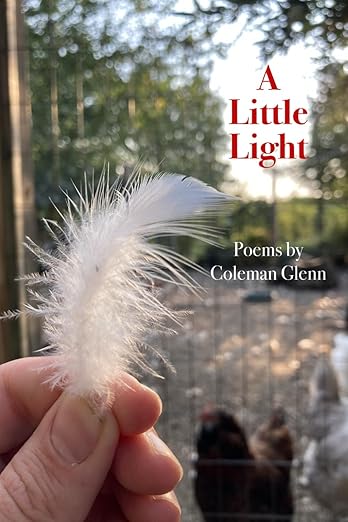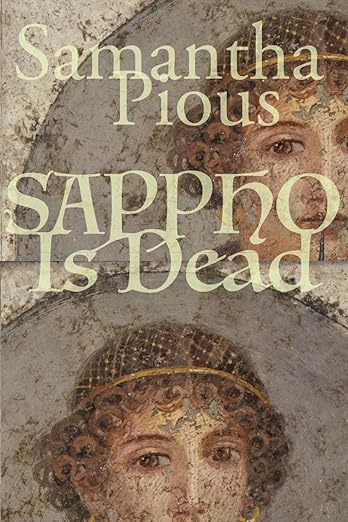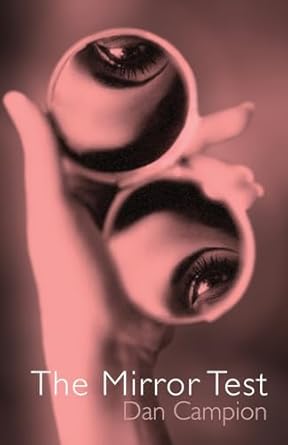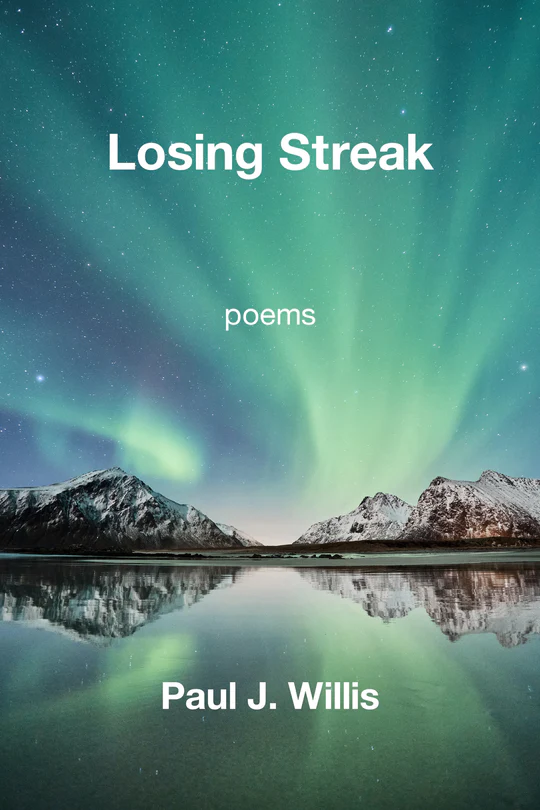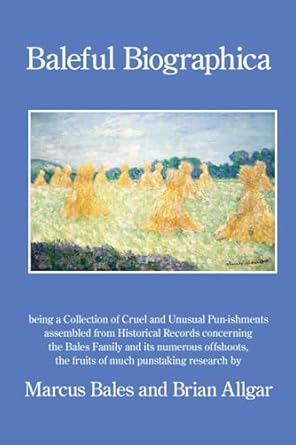If you have a book you’d like considered for a review in Light—one that includes a large helping of comic verse and was published within the previous 12 months, or will be published in the next eight—please send a copy to:
Barbara Loots
4741 Central St.
Ste. 601
Kansas City, MO 64112
(Pre-print-run electronic copies may be sent to lightpoetryreviews@gmail.com)
Light on Their Feet
Reviews of books by Brian Allgar, Marcus Bales, Dan Campion, Coleman Glenn, Samantha Pious, and Paul J. Willis
by Barbara Loots
A Little Light, by Coleman Glenn. 2024
Definitions of “light verse” embrace a universe of style, subject, and sense of humor. I’m old enough to remember when witty verse, warmhearted poems, and silly rhymes were regularly published in popular magazines and newspapers. Somehow, poetry lost its place in the life of our time. Readers began to think of it as a mystery to be puzzled out in school, not an everyday pleasure. The audience for “poetry” shriveled into academia.
Here’s to the revival!
In his new collection, Coleman Glenn hits a rare sweet spot–and I don’t mean sweet the way I grooved it as the empress of sentiment at Hallmark. His poems are accessible, but far from simplistic. His craft adheres to my highest rule: Not a syllable wasted. His humanity shines in the events and relationships he records in conversational verse. You’ll find the triolet, the rondeau, the blank verse narrative, the parody (with apologies to Robert Frost), the song lyric, the villanelle, a crown of sonnets, and more. And here, form takes a backseat, as it should, to the heart of the matter.
The book is divided into three parts: The Everyday, Verse Light and Dark, and Devotional Poems and Hymns.
Part One: Glenn has six children. And chickens. Imagine the inspiration (and frustration) and you’ll be ready to relate to the stories in “A Crowded House,” “Precarious,” “Swing Kids,” and “Bears,” among others. Here’s a short one:
Revision
Their clumsiness annoys me. No,
their carelessness. Their choice
to rush. I yelled. But really though,
I barely raised my voice.
Eight poems in Part Two were published in Light, which guarantees quality. Here’s a short one that touches on one of Glenn’s themes in every section, his role as husband and father:
Fourth Trimester
Fourth trimester, n.: the three month period immediately following giving birth in which the mother typically recovers from childbirth and adjusts to caring for her infant. (Merriam-Webster)
We cuddled you close for the whole fourth trimester—
we cherished that bond, and the closeness was heaven.
And dear, we still love you; we don’t mean to pester—
but…leave. It’s trimester one hundred and seven.
If you’re a Christian (a faith I claim) you’ll be especially rewarded by the poems in Part Three. Here’s one of the shorter ones:
Outer Darkness
But he that had received one talent went and digged in the earth, and hid his lord’s money. (Matthew 25:18)
Sure, give a handout to the guy
who begs for coins from passersby.
Pretend his story’s not a lie;
be called a saint.
Or give your cash to institutes
well-staffed by stiffs in pricey suits
whose tendency to bear small fruits
they call “restraint.”
Your best attempts at helping hurt.
You go ahead and give your shirt;
I’ll keep my talent in the dirt,
free from taint.
The point here is not limited to one faith.
Any literate person will appreciate the insights in ”Five Parables of Jesus”: the Good Samaritan, the Sower, the Prodigal Son, the Pharisee and the Publican, the Wheat and the Tares—-all of which are touchstones in world literature and culture. Finally, Glenn’s hymns and poems for Christian occasions are scripturally grounded and well made. He is a gifted pastor.
The blurb on the back cover calls this “A collection of light verse, dark verse, secular verse, sacred verse, sentiment, song parodies, and dad jokes.” Looking to sway someone toward the joy of reading poetry? Give them this book. Glenn creates much more than A Little Light.
Sappho Is Dead, by Samantha Pious. Headmistress Press, 2024
From the get-go, Samantha Pious whips together erudition and whimsy to create a collection of seriously funny—or wittily dark—poems that will draw you in.
“I tell you, the second coming of Sappho may yet be at hand, ” she writes in the title poem. Happily, Sappho’s sisters like Samantha Pious are already at hand with poems that provoke and please.
“Women,” a skillful sonnet replete with sly erotic references, calls to my mind the barriers against women’s voices in a man’s literary universe:
… In a measure,
we are the masters of the tools we’ve made.
Until they turn against us. We submit
and are rejected, first by one, then all—
damned with faint praise, burlesqued by every wit:
“Simplistic.” “Tries too hard.” “Emotional.”
Spines broken, jackets threadbare, sheets worn thin,
we fall to pieces as the rot sets in.
Pious pursues revenge in a different arena in “Politics”:
Ignore my views, and I’ll ignore
yours. “Not to know
is a privilege,” you all but spit.
“A luxury some can’t afford.”
How true. I feel so fortunate.
to know you’re full of—call it grit.
For sure, Pious is a master “in a measure”—that is, of the forms and techniques of verse. She works in sonnets, couplets, quatrains, blank verse, and the “prose poem.” Also in something like a nursery rhyme in her learned but light “the birds praise Joan of Arc,” which begins:
at Domrémy the pigeons sing
with a do, and a re, and a mi—
At Valcouleurs all in a ring
the hens refuse to lay—
the cygnets at Chinon are mute
yet show astounding signs—
At Orléans a sparrowhawk
swoops low among the pines—
…
Pious is topical: “The Tale of the Horse’s Ass” (guess who) and “Post-Apocalyptic Poetics”…
She is poignant: “Granny’s Kitten,” “Failure”…
She is imaginative as she takes you to “Midnight at the Musée d’Orsay,” “Milan,” the Middle Ages, and the “Old Church, Delft” painted by an Old Master.
Helpful notes furnish clues to a few of the poems with possibly unfamiliar literary or geographical references.
Can you tell that I like this collection? Perhaps that’s best explained by the middle stanza from her poem “Selfie” that describes a girl I once knew.
I am the girl who reads when she walks,
one of your local eccentric types.
I wear bohemian skirts and tops.
If my teachers hadn’t called me bright,
if my father and I had never fought,
if the neighborhood weren’t so gentrified,
would I still exist? Conceivably not.
You don’t have to be that girl (or a girl at all) to find insight and intelligence to appreciate in this memorable collection.
The Mirror Test, by Dan Campion. Madhat Press, 2024
As John Mella, the founder of Light (then called Light Quarterly) wrote in 1998, “Witty, slangy, elliptical, funny, Campion’s poems are all readable.”
Truly they are. This new collection is one to keep close at hand and savor slowly. You will be rewarded. Here’s a sampling of what you’ll find in The Mirror Test to make you smile.
“Peregrine, Crocus, Aquavit” is an amusing summation of the kinds of things kids carry away from a visit to, say, the Field Museum in Chicago. A sample:
Shrunken head key chains,
magnetic mummies
in tinny cases,
plastic Tyrannosaurs; […]
Blue Bird school bus
caravans came home as
heavy with souvenirs
as Lord Carnarvon.
[and more]
Can’t you just envision the swarm of kids in the gift shop? The best part of their day.
In “Jubilate Lupo,” Campion describes the GOP’s pet in the manner of Christopher Smart:
For we will consider our dog Magnus.
For he is the servant of We the People and duly and daily serving us.
For he pricks us to remember Greatness abounding that he alone can retrieve …
And on the canine subject, he writes one of his signature sonnets about “The Two Dogs”:
A neighbor walks two dogs, one on a leash,
the other free to bound across our lawns
as joyful as a dervish on hashish.
I recognize that neighborhood hound! And then there’s “Schrödinger’s Dog”:
The cat that’s living and not living too
Has baffled millions, and itself. A cat’s
Designed for that. A dog knows what to do:
Just bark, and get a biscuit and congrats.
Six poems in this collection were originally published in Light, and one in Parody—not a large proportion of the contents. However, the riches of the collection include, and far surpass, the moments of levity. If you haven’t already, make friends with Dan Campion.
Losing Streak, by Paul J. Willis. Kelsay Books, 2024
This generous collection of poems by Willis reads like the journal notes of an observant, wry, and sociable man rendered into poetry. From “Silverfish” to “Sir Phillip Sidney, at Sutphen,” you’ll get acquainted with the poet’s itinerations, interests, and ideas, in a range of verse forms.
A number of tribute poems are dedicated to named persons or celebrations. For example:
For Marilyn, on Her Retirement from the College Bookstore
Marilyn Loppnow
is leaving the shop now.
She’s been there so long
that something feels wrong.
Things won’t be the same
without her to blame,
but they cannot be right
without her oversight …
The poem continues, though no other rhyme in it could be more memorable than the charming Loppnow/shop now.
A tribute to someone named Heather Mackenzie Speirs is subtitled a salute in Skeltonics. I had to look that up in my Miller Williams Encyclopedia of Forms. Just for fun you might like to try the scheme, attributed to John Skelton (ca. 1460-1529). Relentless repetition is a comic technique of classic heritage. Here are the opening stanzas:
Heather MacKenzie Speirs
was getting quite up in years.
She said to her colleagues and peers,
she said, “Farewell, my dears,”
said Heather Mackenzie Speirs.
Heather MacKenzie Speirs
said, “Let there be no tears,
for it’s not what it appears.
Pray, go on with your careers,”
said Heather MacKenzie Speirs.
Arranged in six chapters, the collection brings on a goodly helping of fun. As a Kansas City resident (thus an obligatory Chiefs fan), I turned straightaway to:
What Patrick Mahomes Wants to Know
Lest Taylor should swiftly get bored,
I threw Travis the ball, and he scored!
But after the game,
as Trav left with his dame,
did those two put more points on the board?
Clearly we should all keep our notebooks handy while watching, or reading about, sports. Celebrities of all stripes are meat for humor.
As a college professor (now emeritus), Willis comments on some of the drearier aspects of teaching in poems like “Hymn to the Goddess of Assessment” and “Summer Poetry Workshop.” Who among us doesn’t remember the miseries of “Zoom Zoom Zoom”?
My audio is cutting out,
the chat has thrown a fit.
The ring light has begun to blink:
my face is barely lit.
My breakout room has broken down,
my screen share is a miser.
The URL has gotten lost,
and I am none the wiser.
Willis goes on to dream of somewhere else.
He is playful in “O Callaloo” and “Winter Valentine,” philosophical in “Night Thoughts (II),” and descriptive in “Puzzle of America,” as in this snippet:
A salmon from the sea
of our puzzle of America
is gladly leaping inland
just about to take a bite
of the little black dot
that is Portland, Oregon,
where everyone’s asleep
for it’s one o’clock at night!
The book is a treasury of short poems written as couplets and quatrains, sonnets and limericks. My favorite poem, however, is the long narrative “Steven.” Willis describes a challenging trek along a trail from Mexico to the Canadian border, where meeting up with a generous stranger proved to be both life-saving and life changing. In his storytelling, the poet is most compelling. And in any case, Willis provides a trail for readers to follow, with fresh discoveries from page to page.
Baleful Biographica, by Marcus Bales and Brian Allgar. Kelsay Books, 2024
You have a frenenemy, don’t you? The best comeuppance: give them this book. Or claim it for your own library, which could probably use more clever silliness. Bales and Allgar aimed to afflict amuse us with “Cruel and Unusual Pun-ishments.” The collaboration apparently occurred across the time zones between Cleveland and Paris, a literary friendship with, well, baleful results.
The framing of the collection as the ancestral biography of Mr. Bales is inspired—-possibly by alcohol? The verse craft is remarkable. The puns? Unforgivable.
In view of these political times, here’s a single example of what you’re in for from Allgar and Bales:
The Doctored Drink
This is the story of Congressman Archibald Bales
A Republican doctor who represents east Tennessee.
In the Great Smoky Mountains one aberrant world-view prevails:
That misogynist racists are keeping America free.
Doc, as he’s locally known, drinks a specialty drink,
A concoction so evil that even a lobbyist gags,
A hazelnut daiquiri, colored Republican pink,
With constituents gathered among the Confederate flags.
The barman ran out of the hazelnut extract one night,
With no time to get any more before Archibald’s visit.
He thought that a hickory substitute might be all right;
One sip, and the doc growled, “That isn’t hazelnut, is it?”
The barman said nervously, “Sorry, we ran out of stock,
So this is a new one: a hickory daiquiri, Doc.”
Don’t say you weren’t warned.
Also Received
Metes and Bounds, by Jane Blanchard. Kelsay Books, 2023
Shoes Last Longer in LA, by Matt Schatz. Kung Fu Treachery Press, 2024.
Shiver With Me Warmly, by Rob Schnelle. Bootpath Books, 2024

